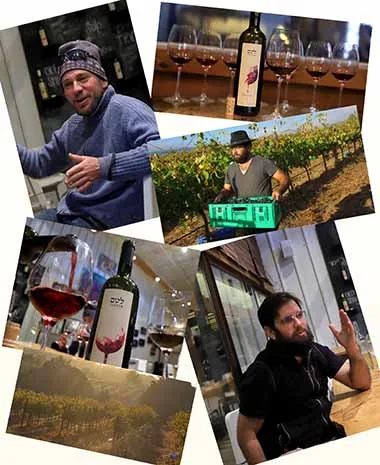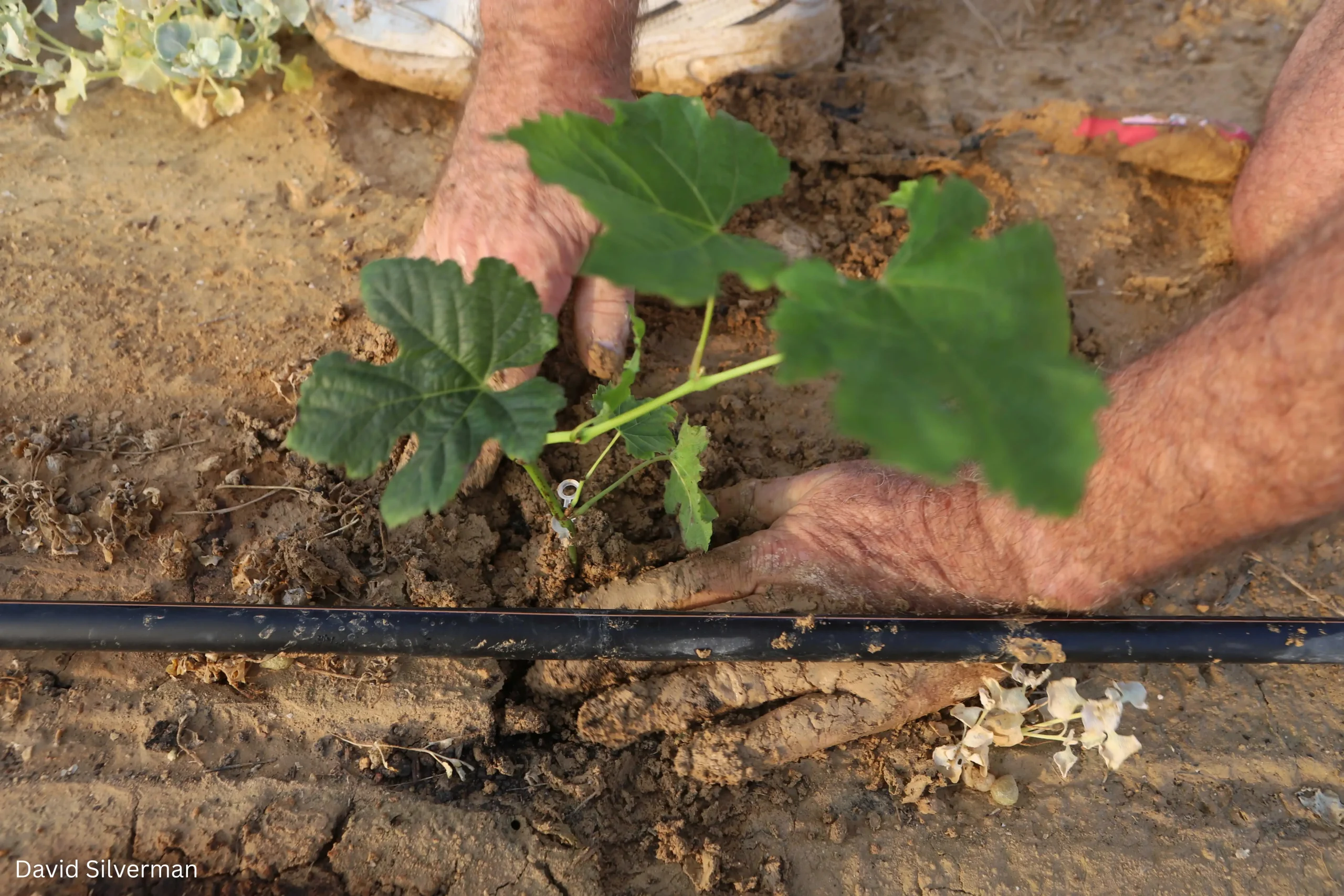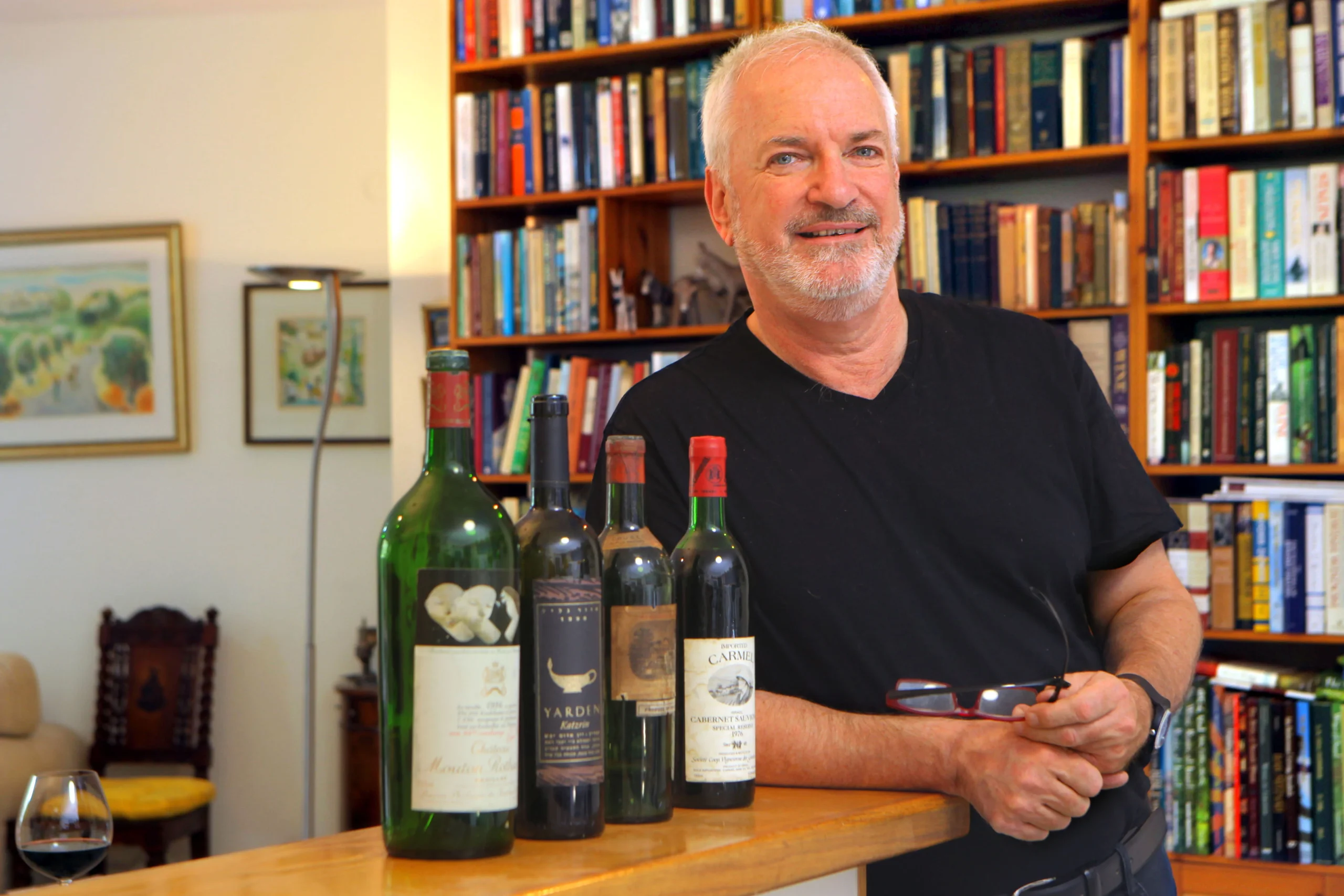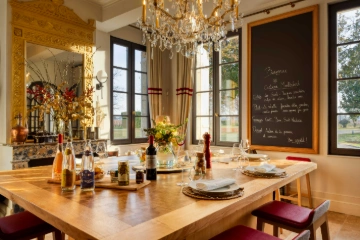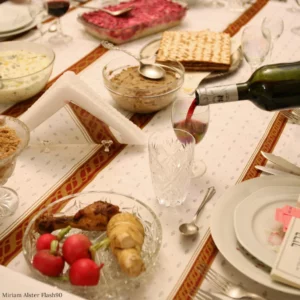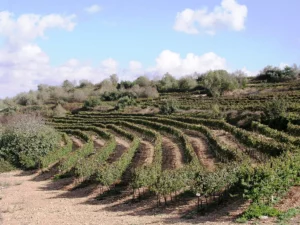Yonathan Koren is a person of vision. He had a dream to found an organic winery, and did so, with no ifs or buts. When he became enchanted with Portugal as a wine country, he had the idea of setting up a Twinning Wineries concept, matching Israeli and Portuguese wineries. He took it upon himself to talk, schmooze and persuade the relevant authorities. He found support from the Portuguese Embassy in Israel and Israel Portugal Chamber of Commerce, and then from the Wild Douro tourism company in Portugal. Now, it is actually going to happen.
There will be seven Israeli wineries being matched with Portuguese wineries. These are Amphorae, Bat Shlomo, Tulip, Jezreel Valley, Stern, Lotem and Dalton. These are wineries with individuality, quality wines and a good story. The have been selected because they are interested in the project, but also because, taken together, they form a wine route. The main purpose of the Twinning Wineries concept is to promote tourism. However, the participants will be able to share academic research and the winemakers will be able to liaise together to share knowledge and experiences.
As for Yonatan Koren’s winery initiative, it is the main organic winery in Israel. (There are only two that I know of.) There are a few organically grown vineyards in Israel. For instance, the Golan Heights Winery’s Odem Vineyard Chardonnay has been organically grown for many years. However, making organic wine, means following the organic rules not only in the vineyard but also at the winery. Going organic has up to now had mixed results for wine. Whereas the organically grown potato or carrot, will be sought after by certain customers, who will be prepared to pay more for it, organic wine has always been slightly frowned upon as one step too far. It has never really taken off.
The market place though, is changing fast. Once it was simple. You would go into a wine shop and buy wine listed under helpful headings like Red, White, maybe Cabernet Sauvignon, Chardonnay, or even Burgundy, California. Yet, when I recently went to Whole Foods in Kensington High Street in London, I got a shock. There, you can buy organically grown, organically made, low Sulphur, no Sulphur, Biodynamic, Natural, Vegan wines……not forgetting Kosher of course! There is a whole new underworld of compassionate winemaking coming to the fore. The wine world has suddenly become a lot more complicated!
In Israel we are way behind, but things are also changing here. Sustainability is becoming a trend. The Golan Heights Winery as usual does not cut corners. They were given certification for introducing Sustainable Agriculture by the Californian based Lodi Rules, which is considered meticulous and comprehensive, thus becoming the first international winery to come under the regulations of this established sustainability regime. Tabor Winery is converting their vineyards to becoming ‘Ecological Vineyards’, as certified by The Society of the Preservation of Nature in Israel. Tzora Vineyards is the first winery outside Europe to be certified to the standards of Fair’n Green, known for promoting sustainable viticulture in Europe. Funnily enough I have always thought that sustainability as a concept and vision, was a good partner for kosher from a marketing point of you. Kashrut would appear less voodoo to the regular, non-kosher wine drinker if explained alongside sustainability.
Yonatan Koren is the pioneer of organic wine in Israel. Once there was the Bashan Winery on the Golan Heights, but it fell by the wayside. Lotem Winery is a joint venture between Yonatan Koren and Yaniv Kimche. Koren, with a full head of black hair, blacked rimmed glasses and bushy beard, looks more like a yeshiva bocher than a winemaker, but winemaker he is. Kimche is not also a veteran wine lover, but also a hi tec veteran.
Koren has always been fascinated by alcohol. At the tender age of fourteen he was making his own infusion liqueurs, to satisfy his own curiosity, which he sold at school. Then, later he made beer. The first wine to turn his head was the Carmel Selected Emerald Riesling. He was not alone. It was then the biggest wine brand in Israel. He spent his youth and his money sitting at the counter of the Vino Cigar wine shop, in the Azrieli shopping center. There he tasted, purchased and talked about wine. Wine became embedded as a passion, a scratch that would not be satisfied unless he made wine.
He studied wine at the Ohalo College in Katzrin, and learnt from established winemakers like Tal Pelter and Ari Erle. His studies took him to Burgundy, an experience which influenced him greatly. He is crazy curious, is part mad professor, part intellectual tinkerer and part unshakably wedded to his vision, come what may. He has a great sense of humor, dry, almost English in style, though often the punch word is mumbled as an aside, and hard to hear. He loves to cook, eat and is not a puritan. He knows how to enjoy life.
His is a spiritual winery, and unashamedly organic. “Why not?” protested Koren, when I asked if it was possible to make good organic wine. He grows the wine in the Tzivon vineyard, which lies within an oak forest at an altitude of up to 750 meters, near Mt Meron. I talked to Ido Sirkin, the wine grower and viticulturist, who has the benefit that he also graduated as a winemaker. He is well on the way to having the first biodynamic vineyard in Israel. Ido and I had met before. He was a winemaker at Carmel for a very short time. However, the big commercial winery did not suit the individuality of this idealist and man of the soil. He has an extraordinary empathy with his vines and is on a mission to give them the best chance to grow up into interesting wines.
Yonatan told me “when I first saw Ido in the vineyard, I immediately saw someone in tune with nature and at one with his vines. He seemed to move so easily or even flow in the vineyard.” To use a musical analogy, it seems as though there is duet going on between like-minded artists here, one in the vineyard, the other in the winery. They have a shared attitude “interfere less and receive more.” The other thing they talk about is “our objective is to grow acidity. We have sugar, ripeness and color in abundance. It is acidity we need.” They both see their job as finding balance, an ecological balance in the vineyard and a natural balance in the wines.
The music analogy is totally appropriate. Music is played constantly at the Lotem Winery, whether people are there or not. There is a play list, on a loop, which is not for those working there, or the visitors, but for the wine maturing in barrel. It is all about creating good energy. I was told wine is a living thing and reacts to music. Ask its molecules. Apparently, they are music lovers.
Then there are the wines. You can sit on the balcony, with a wonderful view and see the Sea of Galilee in the distance. It is a great place to sip wines. We tasted two Sauvignon Blancs from different vineyards (Shifon on the Golan Heights and Tzivon.) Most small to medium sized wineries would blend them together, but of course, that would not do here. They are kept separate to preserve the purity of the vineyard expression. The Golan wine was fruitier, more aromatic, the Galilee one was more steely and minerally.
Not surprisingly, all the wines have brand names with musical connotations. I loved the Allegro 2018, a quaffable blend of Cabernet Sauvignon, Cabernet Franc and Nebbiolo. Slightly perfumed on the nose, fruit forward with aromas of strawberries and cherries, it has good acidity and a refreshing but not unpleasant bitterness on the finish. A very drinkable lunchtime wine. The Solo Cabernet Sauvignon 2017 is a serious wine. It has a rich nose, broad flavors and nice complexity. I got a whiff of vanilla oak flavors on the nose, but the flavors in the mouth were not masked by the oak. The palate was fruit driven and many dimensional. I liked the balance in the mouth. These wines are not expensive. The Allegro is 75 shekels at the winery, and the Solo is 90 shekels.
If Lotem has a speciality, it is the Nebbiolo. This is the variety that makes the great Barolo and Barbaresco wines in Piedmont, Italy. Lotem is the leading practitioner of this grape in Israel. As you would expect, the intellectual tinkerer makes two versions of the same wine. There is the regular Nebbiolo 2016. This is aged in a used barrique (225 liter barrel) for one year and eight months. Then there is the Nebbiolo 2016 500, which is aged for two years in old 500 liter barrels. The wines are so different, it is a challenge find something in common between the two of them, which is surprising when they started as the same wine, from the same vineyard. Certainly, both do have that similar sour cherry nose, but the delivery and impact is totally different. The regular Nebbiolo had a haunting aroma and was the more complex expression, but it was sold out on my visit. It must be popular.
Yonatan loves to experiment. We tasted the winery’s Pet Nat and orange wine. The Pet Nat is short for Pétillant Naturel, a natural sparkling wine and that is what it is. It is a fun, unpretentious wine. An orange wine is a white wine made like a red wine with the skins of the grapes in contact with the juice. It is a paradox. Wine geeks will flock to taste them out of curiosity. However, my experience is that people who are not great wine lovers, like them too. They find them not as sour as white wines or as astringent as reds and they go well with food. Lotem Winery’s orange wine is called Old Shnorkel, after a much-loved family dog and a portrait appears on the label. As a long time dog owner, I appreciate the idea of naming a wine after a canine member of the family, but the concept does not work with every name. My dog is called Lulu, (poor thing) and much as I would love to immortalize her on a bottle of wine, “Waiter, can I have a bottle of Lulu?” sounds infinitely less satisfactory than “A bottle of Old Shnorkel please!”
Yonatan Koren’s Lotem Winery is an original, providing a signpost and example for his peers. Yes, he wants to make organic wine on principle, but he also wants to make good wine. I believe he has achieved this and slain a few dragons of preconceived perceptions on the way. The Twinning Wineries concept is a great initiative which will benefit wine tourism. He may be a mad professor and intellectual tinkerer, but he is not some starry-eyed idealist. His wines are individual expressions of character and individuality, providing much needed variety to the Israel wine scene.
Wine trade veteran Adam Montefiore has advanced Israeli wine for over thirty years. He is the wine writer for the Jerusalem Post. www.adammontefiore.com
PHOTOGRAPHS: David Silverman. DPS Images.


